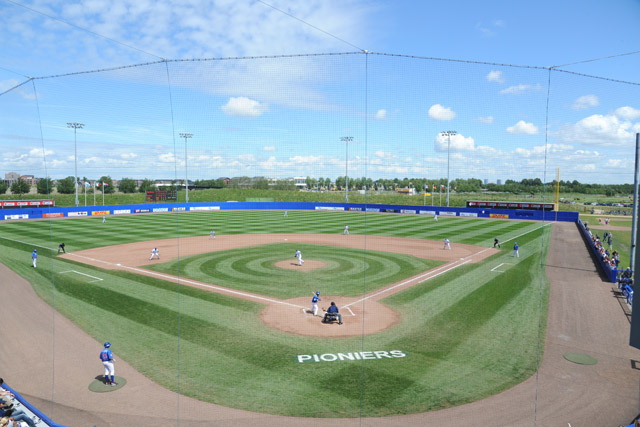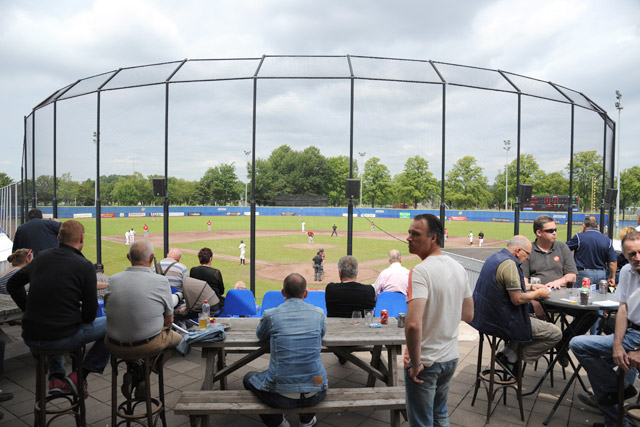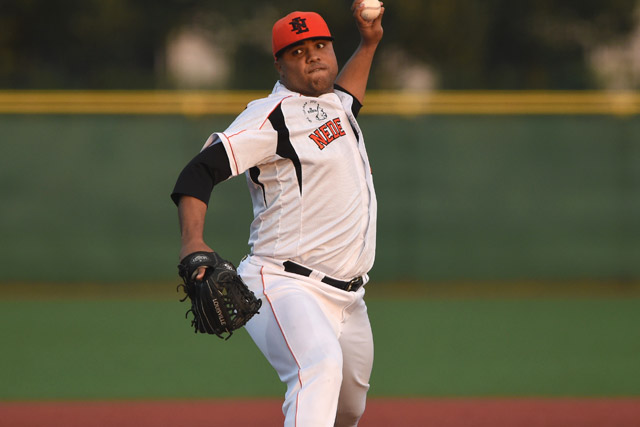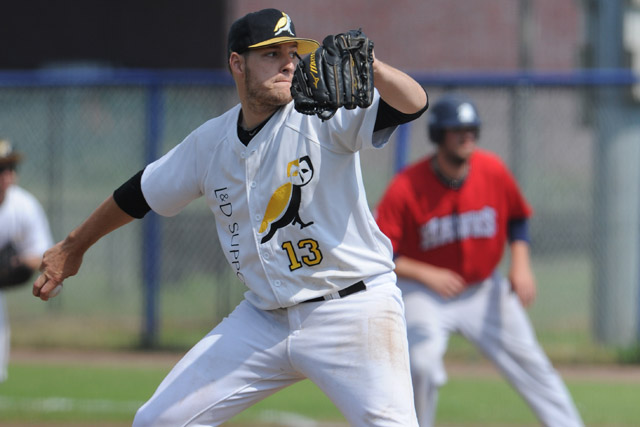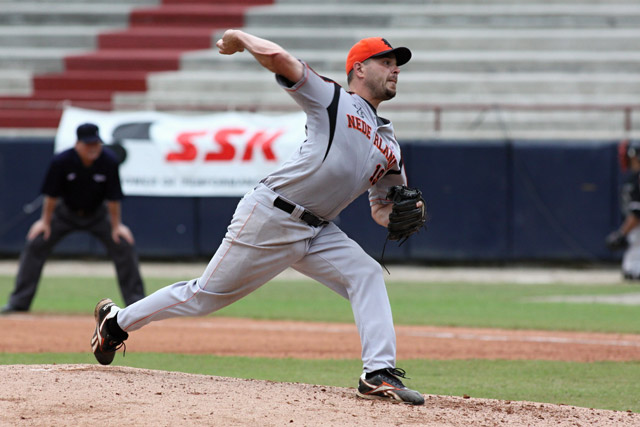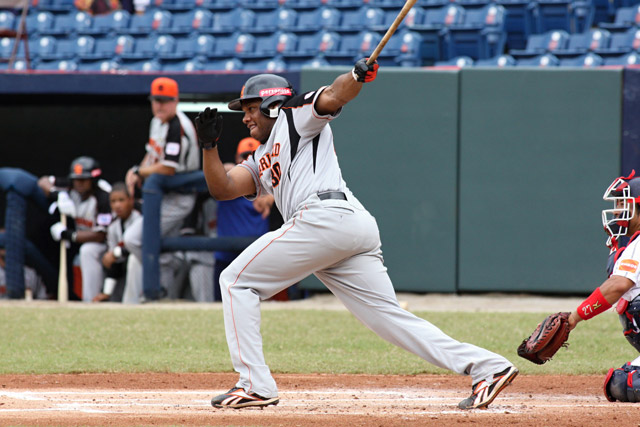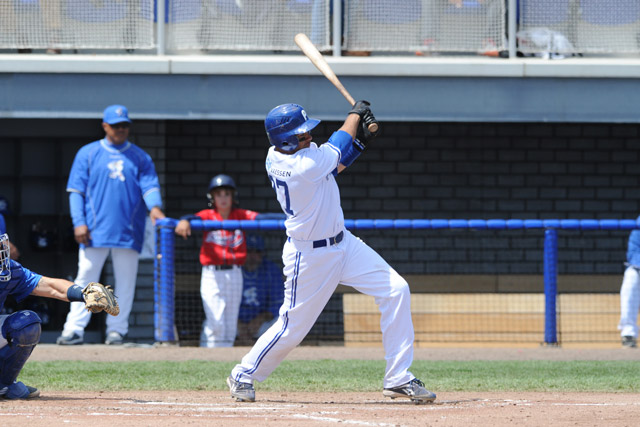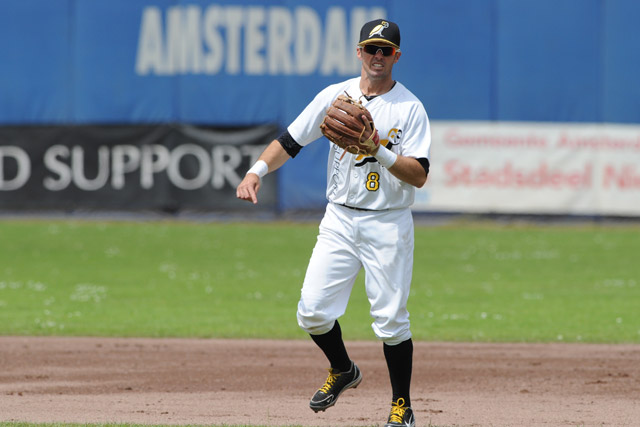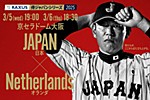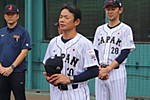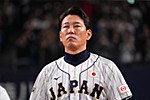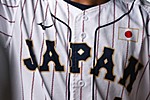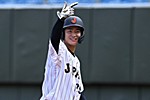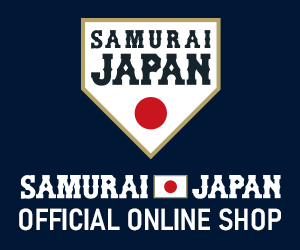By Hirokazu Yokoo
At the forefront of the European representatives Japan will battle against are the players from Netherlands. The Netherlands won the IBAF World Cup in 2011, and advanced to the final four (along with Japan) in the 2013 World Baseball Classic (WBC), whipping up a storm in the world baseball scene.
Baseball in the Netherlands began in 1901, when J.C.G Grase returned from America, bringing the sport with him. He translated the rules of baseball into Dutch and held the first official game in 1911. The following year, in 1912, the Dutch Baseball Union was established, with the domestic league first coming into the world in 1922. Further developments followed, with the Haarlem Baseball Week, popular in Japan, held since 1961, and Dutch national teams entering international tournaments since 1971. Slowly but steadily, Dutch baseball has advanced to its current position in the world.
In the World All-Stars vs. Cuba game, an amateur baseball event held at Tokyo Dome in May 1993, Sadoharu Oh led the World All-Stars as General Manager.
And out of the various players coming from 10 different countries and regions, Manager Oh chose the Dutch first baseman Eric de Bruin as his cleanup batter.
At 182cm and 82kg, the lefty-batter Bruin surprised Manager Oh during batting practice. “To find a slugger like this in Europe was… (a surprise).” The Netherlands rise to the top levels of baseball is largely tied to the introduction of pros (and former pros) in international tournaments since 1997.
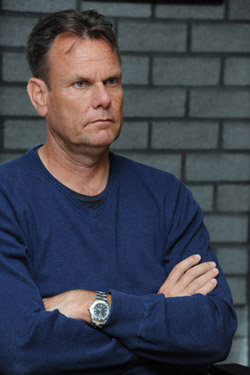
In the 2000 Sydney Olympics, the Dutch gave the seemingly-invincible Cubans their first taste of defeat. That team featured Robert Eenhoorn from Rotterdam in the south of the Netherlands and Hensley Meulens from Curacao of former Netherland Antilles. Being around the same age and having played together on a Yankees affiliate team, they made a pact to improve Dutch baseball. When the Olympics ended, Eenhoorn retired from active play to become manager for the Netherlands, whereas Meulens would scout Antilles-born players on MLB-affiliate teams, and send them over to Eenhoorn in the Dutch league whenever they were released. Thanks to these rapid developments, the Netherlands was able to defeat Japan 5-1 in the preliminary round of the 15th Intercontinental Cup (held in Cuba, 2002) despite Japan featuring 6 pro players in their starting lineup. Since then, the Dutch have shown remarkable strength in international tournaments. They are especially effective against the #1-ranked Cubans. In the 39th IBAF World Cup in 2011, the Netherlands overcame the Cubans twice, in the second round and in the finals, (as well as defeating Japan) on their road to a world championship. Securing their position as best in Europe, they went on to easily take 3rd place in the 3rd WBC in 2013, a tournament featuring top players such as 434-hit major leaguer Andruw Jones (with Tohoku Rakuten until last year) and Wladimir Balentien who set the record for home runs in Japanese league at 60 (Tokyo Yakult.)
The Netherlands has improved to a level able to compete evenly with Japan and currently holds league matches between 8 teams from April to August in the Honkbal Hoofdklasse (which means “Top Class.”) Primarily played on weekends and holidays, each team plays 6 games in a round-robin style for a total of 42 games to determine positions. The top 4 teams compete for the championship. The top two teams advance to the European Cup to face club teams and play games with minor league teams to vie for a bid to play in those leagues. Each team has around 20 players, but aside from foreigners, there are very few players who receive compensation for playing (that is, there are few pros.) Most of them are amateurs who hold other jobs to make a living. If they are chosen to represent the Netherlands, they may be given aid as a specified national athlete from the Dutch Olympic Committee, but is limited to at most 300 thousand yen a month. Also, the stadiums do not usually charge an entrance fee for games in the Honkbal Hoofdklasse, so team costs are covered by sponsoring organizations. For example, the Pioniers, being located at Hoofddorp near the Amsterdam Airport Schiphol, the gateway to the Netherlands, are sponsored by the Vaessen construction company, so the team is officially called the Vaessen Pioniers. Their new stadium opened in spring 2014 was constructed by Vaessen. This “baseball park” features 6 baseball fields, including junior sizes, so that not only Pioniers’ fans, but little league fans and women’s softball fans can make it out to see the game.
Dutch baseball is steadily growing, in terms of fans and number of players, but even though they have become world champions, baseball is still not a major sport in the Netherlands. Often there is must interest for printing the results of games in the newspaper, let alone broadcasting Honkbal Hoofdklasse games on TV. Originally, making the Honkbal Hoofdklasse into a pro league was in the works.
However, as a small country just a bit bigger than Kyushu and with a population similar to Tokyo at 16.6 million, the policy has shifted to steady management of the Honkbal Hoofdklasse to increase the talent pool and gain some attention for Dutch baseball.
Now let’s introduce some of the players at the forefront of Dutch baseball in history and now. At the ace level, there is 34-year old lefty Diegomar Markwell from Curacao. At 17, he signed with the Toronto Blue Jays, rising up to the AA league, only to be released in 2003. However, after entering the Honkbal Hoofdklasse, his pitching tempo variation reached new levels of inspiration, earning him a regular spot on Dutch national teams since the 2004 Athens Olympics. He has pitched in all three WBC tournaments and is known to be the Cuba-killer. As for right-handers, 29-year old Orlando Yntema from the Dominican Republic (his father is Dutch) and 26-year old Kevin Heijstek, steadily building his ability in the Honkbal Hoofdklasse, are ones to watch. Yntema has played for the San Francisco Giants’ Single A Minor League affiliate, stands at 191cm and keeps his tricky fastballs low.
Heijstek also stands tall at 193cm, with a straight fast ball that comes from unique angles and has a weight to it, a type of pitcher Japanese hitters are not particularly fond of.
Furthermore, Ludovicus van Mil who played last year for Tohoku Rakuten and Henricus van der Hurk who is pitching for Fukuoka Softbank starting this year, are two talented pitchers as starting and relief pitchers.
Also, you cannot miss the one they call the “Dutch Baseball Legend”, Rob Cordemans, still healthy at 41 years old for this season. His skillful pitching technique deserves special mention as he can tighten down the early game as a starter or reign in games when the team needs help as a relief pitcher.
Additionally, there are talented players, old and new, in the field as well. During the 2013 WBC with Jones and Balentien, Curt Smith batted 6th in the lineup; in the 2011 World Cup, he batted 4th, providing the motor power for a team championship as the tournament’s RBI leader. The power he has to pull outside pitches to left field is his strong point. Danny Rombley, a star of the Honkbal Hoofdklasse and veteran of the national team, boasts superb clutch performance as a leadoff hitter. On defense, replacing the long-time center fielder Sydney de Jong is Dashenko Ricardo. Masked during the 2013 WBC tournament, Ricardo is steady both on offense and defense.
Veteran shortstop Michael Duursma has a strong presence that works to bring the team together. He has this to say about the current national team.
“It’s definitely true that the team level is higher thanks to players from Curacao and Aruba, and the teamwork is great. The Netherlands has people from former colonies like Suriname and Indonesia, so the feeling isn’t like it’s a put-together team, but more like we are all here to play for our home country. The Atlanta Braves’ Andrelton Simmons is here too, so I think Dutch baseball is only gonna get better.”
Continuing to look to improve their game and with several players who have expressed a desire to play in Japan, the Dutch will surely be heading into their game against Samurai Japan with enthusiasm. At the end of last year, Technical Board Chairman Eenhoorn stepped down from the Netherlands Baseball and Softball Bond, opening the door for a new generation of Dutch baseball.
![]()
